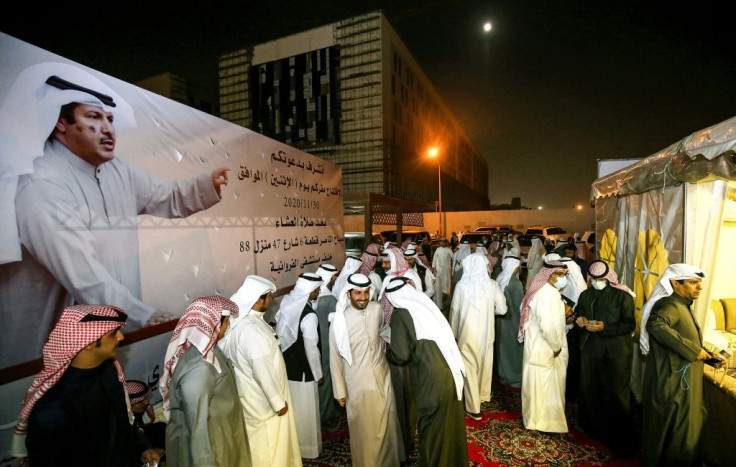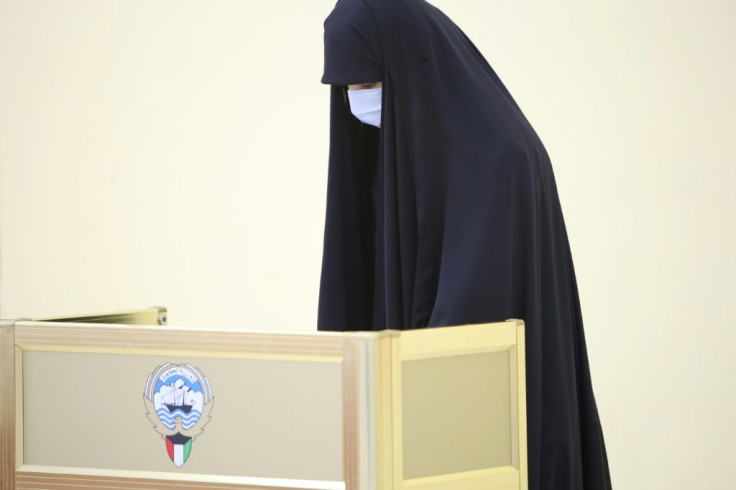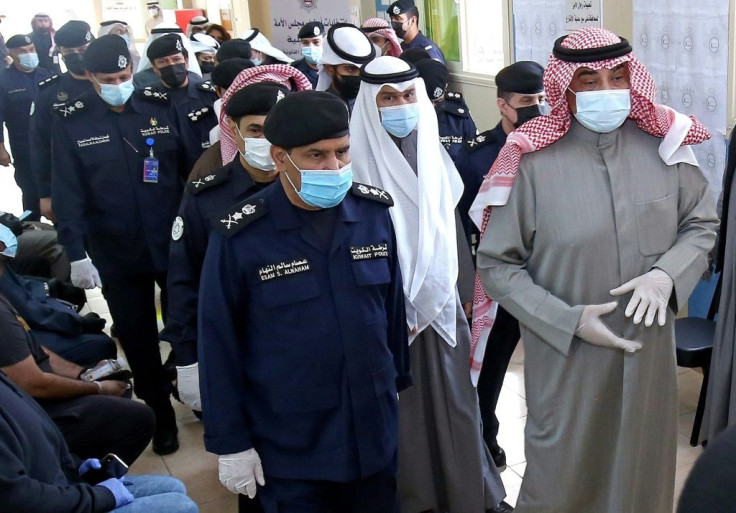Kuwait Holds Parliamentary Election Under Shadow Of Virus
Kuwaitis hoping for reform went to the polls on Saturday in a parliamentary election overshadowed by Covid-19, with facilities laid on so citizens infected with the disease could vote in special polling stations.
The oil-rich emirate has enforced some of the strictest regulations in the Gulf to combat the spread of the virus, imposing a months-long lockdown earlier this year.
While some of those curbs have been eased, over-the-top campaign events that traditionally draw thousands for lavish banquets were absent from this year's election, while masks remain mandatory outdoors and temperature checks routine.
Infected people or those under enforced quarantine are usually confined to home, with electronic wristbands monitoring their movements.
But in an effort to respect their right to vote, authorities designated five polling stations -- one in each electoral district -- for them to cast their ballots.

On Saturday, authorities set up security barriers around the country's 102 polling stations to prevent gatherings, with designated lanes for entry and exit.
Mask-clad voters, who were also forced to wear gloves, were subject to temperature checks before entering the facilities where election officials stood behind glass barriers.
The polls, which opened at 8:00 am (0500 GMT) and closed at 8:00 pm, were the first since the new emir, Sheikh Nawaf al-Ahmad Al-Sabah, took office in September following the death of his half-brother, Sheikh Sabah al-Ahmad Al-Sabah, at the age of 91.
Unlike other oil-rich Gulf states, Kuwait has a lively political life and its parliament, elected for four-year terms, enjoys wide legislative powers.

Political disputes are often fought in public.
But with more than 144,000 novel coronavirus cases to date, including 889 deaths, the election campaign has been toned down, with only a few banners hoisted over the streets.
Instead, this year's campaign has mainly been fought on social networks and in the media.
Yet the normal themes have remained: promises to fight corruption and address youth employment, along with debates over freedom of expression, housing, education and the thorny issue of the stateless "bidoon" minority.
Some Kuwaitis have expressed their desire for change and reform in their country, where 70 percent of the 4.8 million population are foreigners.
"We want change, new blood, to encourage the youth," said Hoda al-Hassan, who cast her ballot in the Al-Rawda area of Kuwait City.

"I also hope that the parliament will resolve the issue of the 'bidoon' and that of the demographic imbalance," she added.
Yousef Ahmed Safar, who voted in the Al-Nazha area, said he too hoped for reform.
"We want to improve our situation, including in employment and housing, as well as the issue of combatting corruption," he said.
More than 567,000 Kuwaiti voters were eligible to choose among the 326 candidates, who include 29 women.
Kuwait's Prime Minister Sheikh Sabah Khaled Al-Sabah told reporters during a tour of the polling stations that he was "happy" with voter turnout and health measures, urging people against gathering to celebrate after results are announced on Sunday morning.
Waiting areas with chairs placed at least two metres apart were set up last-minute in the playgrounds of some schools serving as polling stations, the interior ministry said.
According to health ministry spokesman Abdullah al-Sanad, two people were transported to hospital during polling, reported the official Kuwait News Agency.
He said a number of people were treated for fatigue, headaches or drop in sugar levels at clinics set up in the polling stations.
Like most Gulf countries, Kuwait's economy has been hit hard by the double whammy of the pandemic and slumping oil prices.
According to Kuwaiti analyst Mohammed al-Dawsari, the emirate may witness a "struggle" between the new National Assembly and the government over economic legislation.
"The people were not satisfied with the performance of the previous parliament, and there are many who are calling for a comprehensive reconciliation between the government and the opposition," he said.
While the latter has weakened in recent years, Dawsari said he expected an opposition comeback in the National Assembly this year.
From 2009 to 2013, and especially after the Arab revolts of 2011, the country faced political turmoil, with parliament and cabinets dissolved several times amid disputes between lawmakers and governments dominated by the ruling Al-Sabah family.
"Fighting corruption is the priority... along with scrapping laws that restrict freedoms and for parliament to exercise its regulatory role away from personal agendas," said candidate Ibrahim Dashti.
Kuwait was the first Gulf Arab state to adopt a parliamentary system, in 1962.
Women were granted the right to vote and to stand for election in 2005.
© Copyright AFP 2024. All rights reserved.











